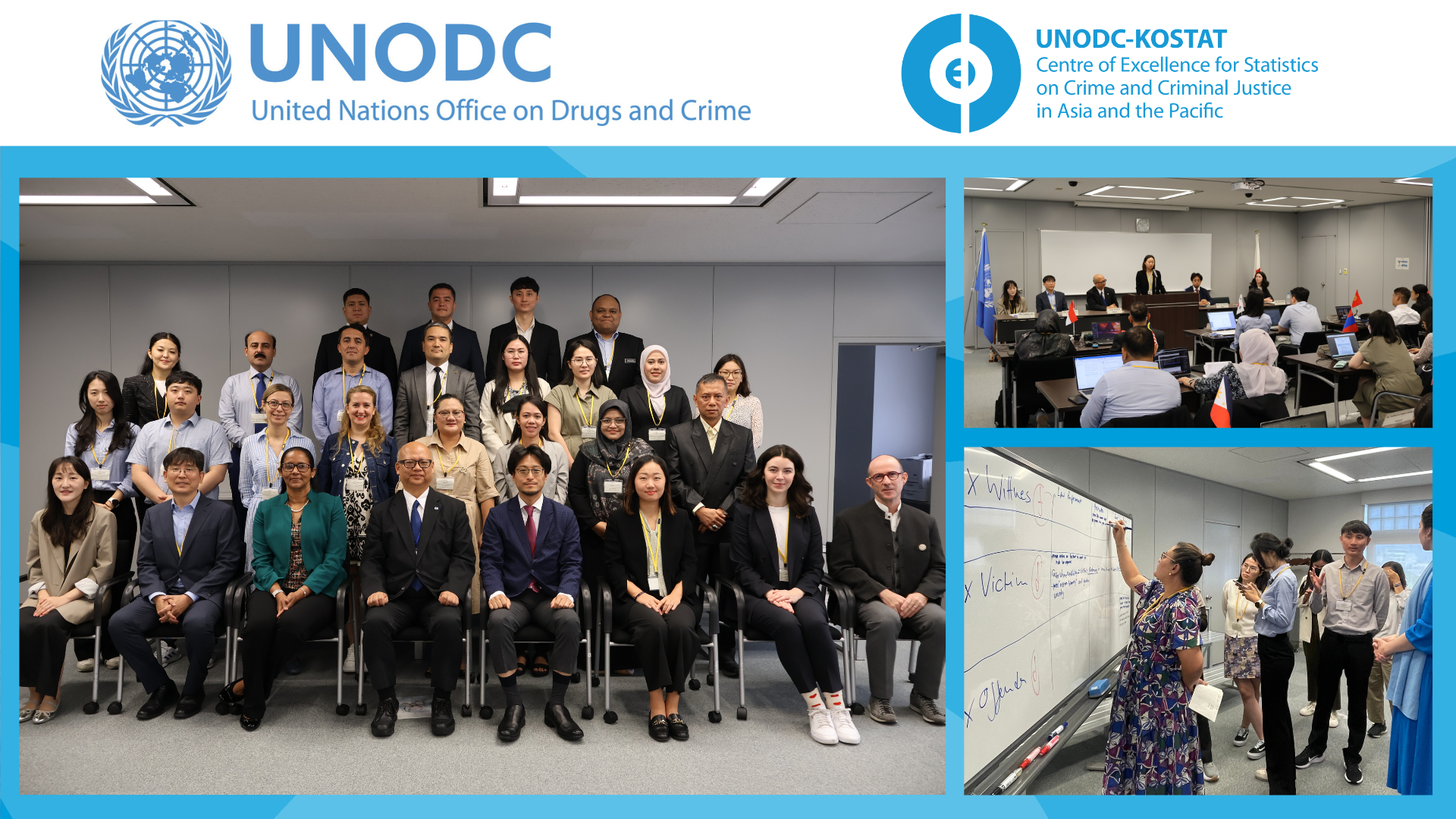
Chiba (Japan), 3-6 September – In an increasingly complex world, the intersection of crime and gender has become a critical focus for policymakers and researchers. To address this pressing issue, the UNODC-KOSTAT Centre of Excellence for Statistics on Crime and Criminal Justice in Asia and the Pacific (UNODC-KOSTAT CoE), United Nations Statistical Institute of Asia and the Pacific (SIAP) and UN Women Centre of Excellence for Gender Equity (UN Women CoE) together with United Nations Office on Drugs and Crime (UNODC) Gender Team co-organized the “Regional Training on Crime Statistics from a Gender Perspective.”
The training was based on “The Second Online Course on Crime Statistics from a Gender Perspective" developed in 2022 by UNODC, SIAP, and the UNODC-KOSTAT CoE, and targeted national experts from national statistics offices, law enforcement agencies, prosecution services, ministry of justice and research institutes across ten countries in Asia.
Hansol Jung, programme officer at CoE, highlighted the 'transformative role that data plays in integrating gender considerations into policy-making' and reiterated the importance of 'analys[ing] crime statistics through a gender lens in order to uncover insights essential for developing effective and inclusive policies.' This approach goes beyond disaggregating data by sex or counting incidents; it involves a nuanced understanding of how gender influences both the perpetration and victimization of crime, enabling to identify patterns, address inequalities and develop more effective and targeted interventions.
The training offered participants a structured journey through the integration of gender perspectives in crime and criminal justice statistics. It introduced and highlighted key concepts such as gender mainstreaming, and the importance of aligning crime statistics with gender-focused objectives. The training also emphasized the need to build a coordinated statistical system that incorporates gender dimensions, leveraging tools like the International Classification of Crime for Statistical Purposes (ICCS).
As the sessions progressed, participants gained a deeper understanding of specific crimes through a gender lens, particularly in relation to the Sustainable Development Goals (SDGs). Topics included intentional homicide, physical, psychological, and sexual violence, harassment, forced (child) marriage, female genital mutilation/cutting, sex-selective abortion as well as trafficking in persons, smuggling of migrants, controlled drugs, corruption, and terrorism. The participants were introduced to data sources for each criminal act, the computation method for such indicators, and their impact on different genders.
In addition to the online course, the training presented the Statistical Framework for Measuring the Gender-related Killing of Women and Girls (also referred to as ‘Femicide/Feminicide’) jointly developed by UNODC and UN Women and touched upon other emerging issues like technology-facilitated violence against women (TFVAW) and Crimes that affect the Environment, offering insights into the global initiatives and challenges of gathering data in this evolving space. Participants explored various data sources, both traditional and non-traditional, and learned how to select the most appropriate ones for different types of criminal acts.
In addition to theoretical knowledge, the course provided practical training on data collection and analysis. On the last day, participants were divided into two groups: Data producers were engaged in hands-on sessions using R software to compute gender-related SDG indicators while data users explored communication strategies for presenting crime and gender statistics.
The training also featured presentations from the participants in order to encourage knowledge-sharing and learn from each other. The participants presented their country-specific experiences in collecting and using gender-sensitive crime data. By the end of the course, participants were equipped with the technical skills and strategic insights to enhance gender mainstreaming in their national crime statistics systems.
The UNODC-KOSTAT CoE will continue collaborating with the UNODC Gender Team, UNSIAP and UN Women CoE to strengthen regional capacity in producing high-quality data for crime-gender-based SDG targets and overall crime and criminal justice statistics, to inform policymakers at national and international levels.
Further information on the CoE can be found here, Twitter @CoE_UNODC and Facebook @UNODC.KOSTAT.CoE.